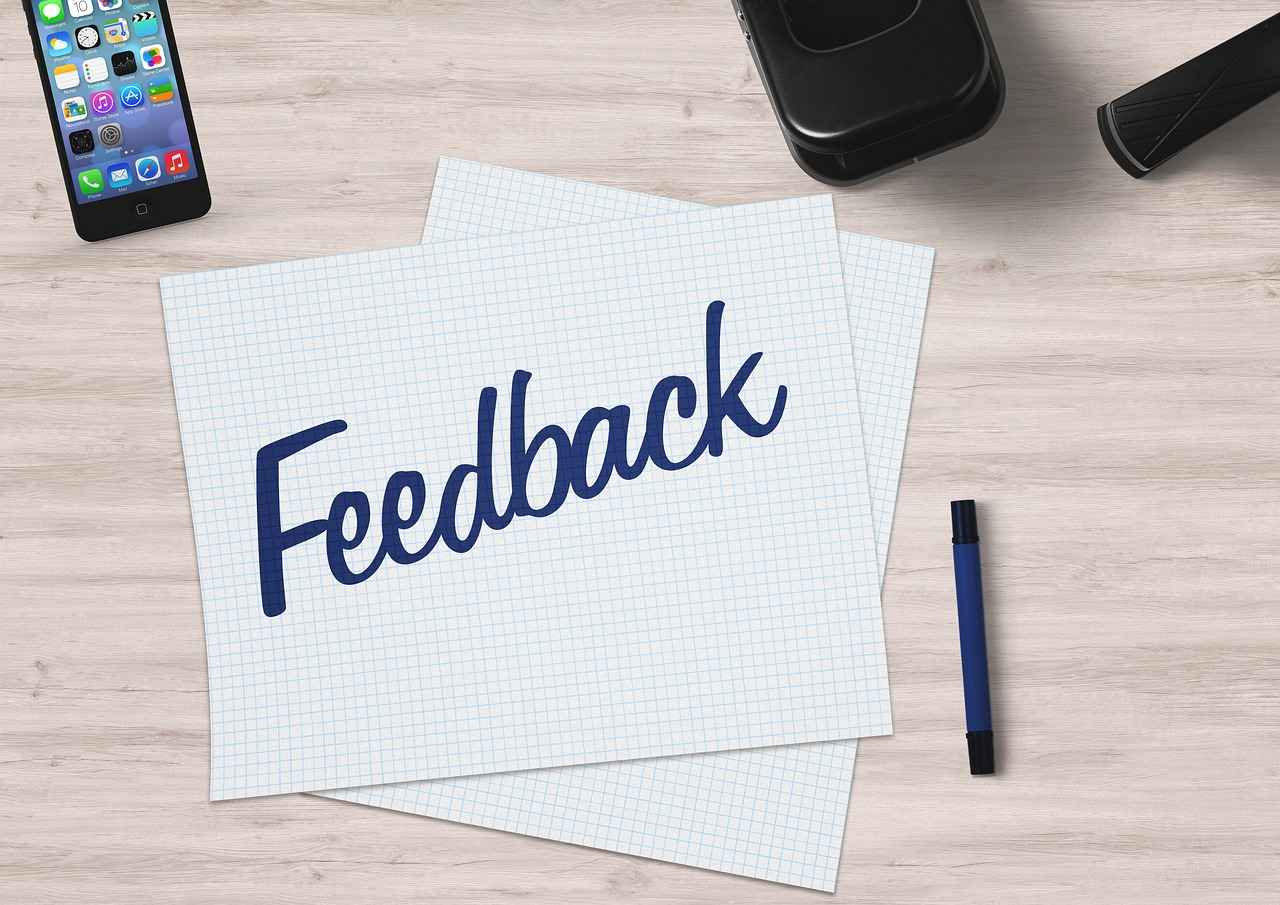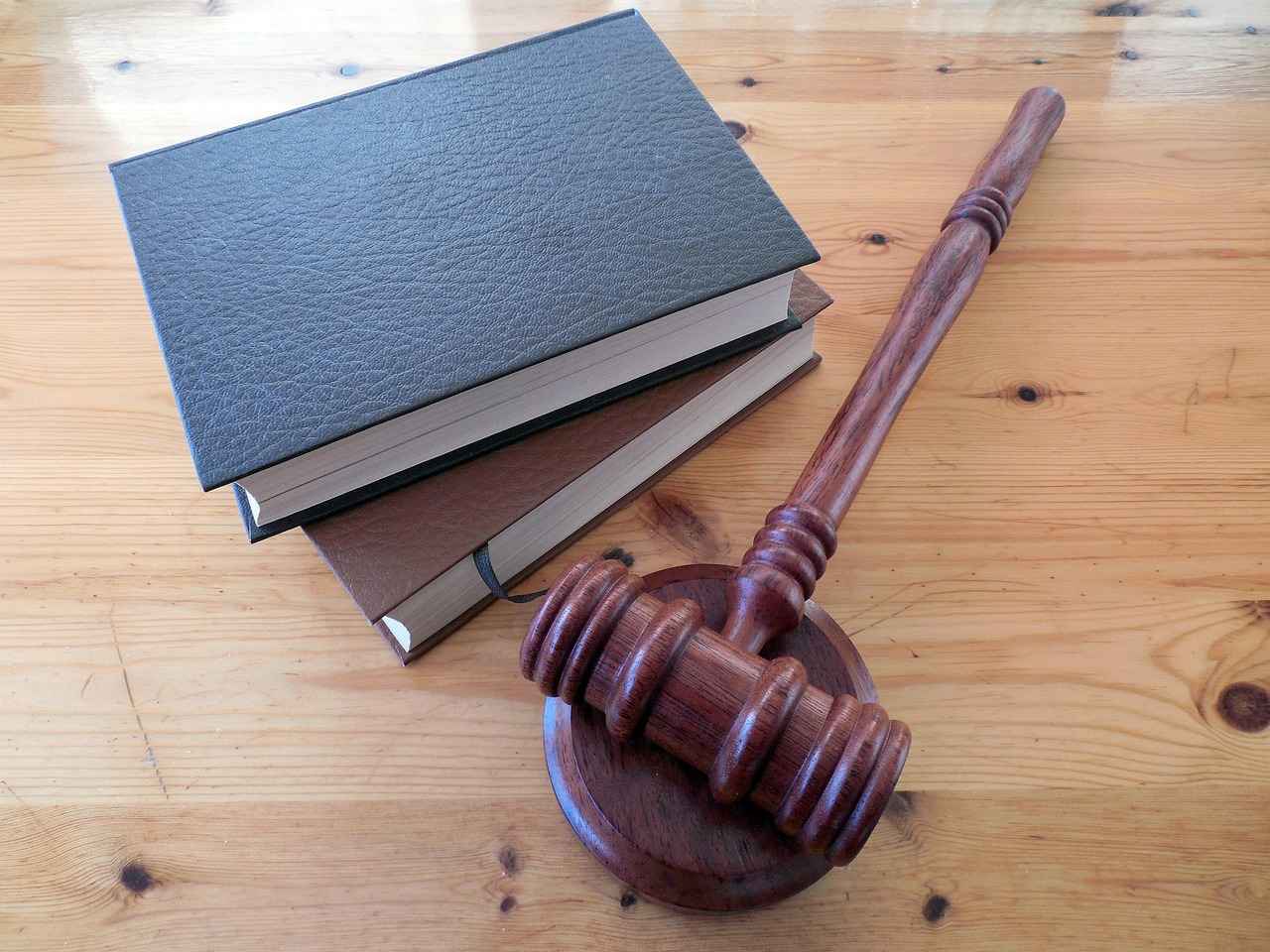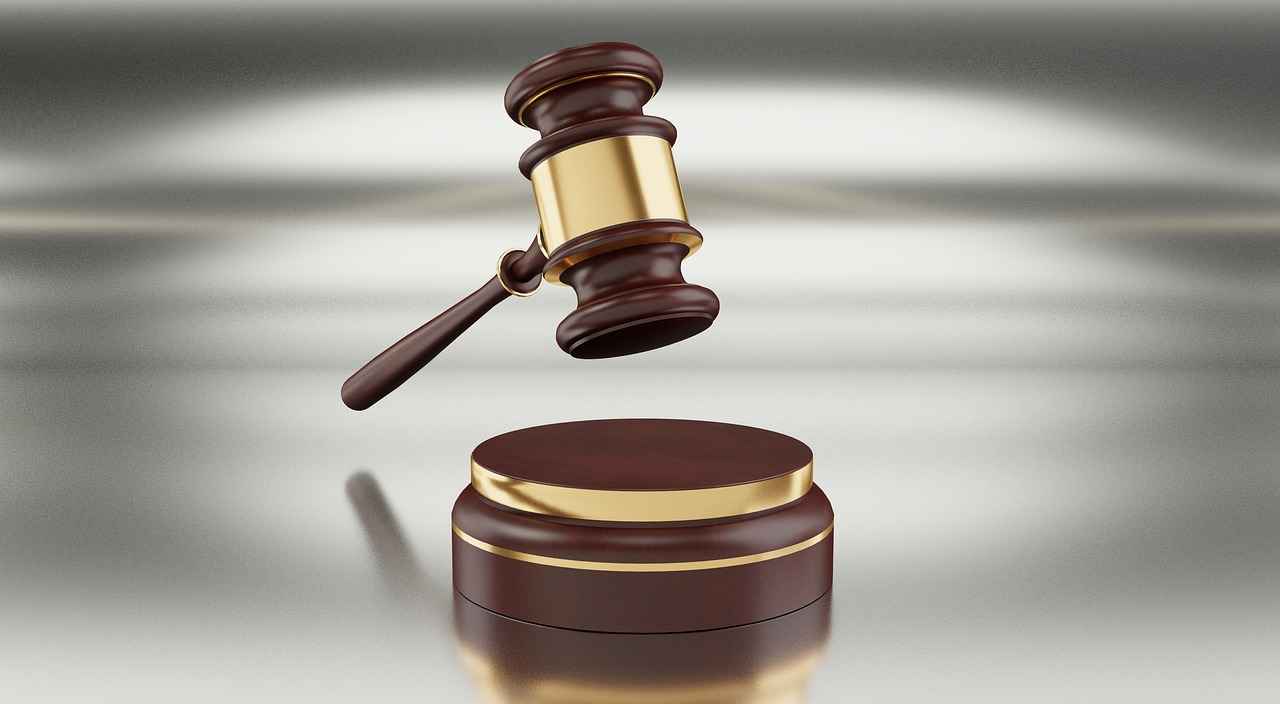This article explores effective strategies for locating qualified lawyers in Hialeah, Florida, focusing on various legal case types and practical tips for making informed decisions.
Finding the right legal representation can be a daunting task, especially in a bustling city like Hialeah, Florida. With numerous lawyers specializing in different areas of law, knowing where to start is crucial. This guide aims to provide you with valuable insights into various legal case types and practical strategies for selecting the most qualified attorney.
Understanding Personal Injury Cases
Personal injury cases are among the most common legal disputes. They often arise from incidents such as car accidents, slips and falls, or workplace injuries. When searching for a personal injury lawyer, look for someone with a proven track record in similar cases. Check their success rate and read client testimonials to gauge their effectiveness. Additionally, ensure they operate on a contingency fee basis, meaning they only get paid if you win your case.
Medical Malpractice: Key Considerations
Medical malpractice claims require specialized knowledge. Look for attorneys with experience in healthcare law and a history of handling malpractice suits. Verify their credentials and consider their connections with medical experts who can support your case. A lawyer with a strong background in medical malpractice will understand the complexities involved and can navigate the legal landscape effectively.
Breach of Contract: Legal Insights
Breach of contract disputes can arise in various contexts, from business agreements to personal contracts. When seeking legal representation, find an attorney who specializes in contract law and has experience in the specific type of contract involved in your dispute. Ask for examples of past cases they have handled and their outcomes to ensure they have the necessary expertise.
Property Disputes: Finding the Right Attorney
Property disputes can be intricate and may involve issues such as zoning laws or landlord-tenant disagreements. It’s essential to select a lawyer who specializes in real estate law. Look for someone who is familiar with local property regulations and has a solid understanding of the real estate market in Hialeah. This expertise can significantly impact the resolution of your case.
Landlord-Tenant Disputes: Legal Representation
Landlord-tenant disputes are common in Hialeah. When looking for legal representation, consider attorneys who have experience with housing law. They should be knowledgeable about Florida’s landlord-tenant laws and able to provide guidance on your rights and responsibilities. Seek out lawyers who have a history of successfully resolving similar disputes.
Defamation Cases: Navigating the Legal Landscape
Defamation cases, whether involving libel or slander, require a nuanced understanding of the law. When searching for a defamation attorney, look for someone with a background in media law and experience in handling high-profile cases. They should be adept at gathering evidence and building a strong case to protect your reputation.
Employment Disputes: What to Look For
Employment disputes cover a range of issues, including wrongful termination and discrimination. Finding a lawyer with experience in employment law is essential. Look for someone who is familiar with both state and federal employment regulations. They should be able to provide you with guidance on how to navigate your specific situation effectively.
Product Liability: Choosing the Right Lawyer
Product liability cases can be complex and require specialized knowledge. When searching for a qualified attorney, look for someone with experience in handling cases involving defective products. They should have a strong understanding of consumer protection laws and be able to demonstrate a history of successful outcomes in similar cases.
Wrongful Death Claims: Legal Guidance
Wrongful death claims are emotionally charged and legally complex. Finding a compassionate and experienced attorney is crucial for navigating this difficult process. Seek out lawyers who have a track record of handling wrongful death cases and who can provide the emotional support and legal guidance needed during such challenging times.
Class Action Lawsuits: Legal Representation
Class action lawsuits involve multiple plaintiffs with similar claims. Identifying attorneys who specialize in this area can enhance your chances of a successful outcome. Look for lawyers who have experience in managing large-scale litigation and who can demonstrate their ability to represent the interests of a group effectively.
Criminal Defense: Assault and Battery Cases
Assault and battery charges can have severe consequences. Knowing how to find a skilled criminal defense attorney is critical for protecting your rights. Look for lawyers who specialize in criminal law and have a solid understanding of the local court system. Their experience can be invaluable in mounting a strong defense.
Cybercrime: Legal Expertise Needed
As cybercrime becomes more prevalent, finding a lawyer who specializes in this area is essential for navigating the complexities of digital law. Seek out attorneys with a background in technology and cybersecurity law, as they will be better equipped to handle cases involving online fraud, identity theft, and other cyber offenses.
Family Law: Divorce and Custody Matters
Family law encompasses various issues, including divorce, child custody, and support. Selecting an attorney with family law expertise is vital for achieving your desired outcomes. Look for lawyers who are compassionate and understanding, as these qualities are essential when dealing with sensitive family matters.

Understanding Personal Injury Cases
When it comes to legal matters, personal injury cases are among the most common types of litigation in the United States. These cases arise when an individual suffers harm due to someone else’s negligence or intentional actions. The scope of personal injury law is vast, encompassing various incidents such as car accidents, slip and falls, workplace injuries, and more. Understanding the intricacies of personal injury law is essential for anyone seeking to file a claim or defend against one.
To navigate the complexities of personal injury cases effectively, it is crucial to find a qualified attorney who specializes in this area. Here are some key considerations:
- Experience and Specialization: Look for attorneys who have a proven track record in handling personal injury cases. Their experience can significantly influence the outcome of your case.
- Client Testimonials: Reading reviews and testimonials from previous clients can provide insights into an attorney’s effectiveness and professionalism.
- Initial Consultations: Many personal injury attorneys offer free consultations. This is an opportunity to assess their expertise and determine if they are a good fit for your needs.
- Contingency Fees: Most personal injury lawyers work on a contingency fee basis, meaning they only get paid if you win your case. Understand the fee structure before signing any agreements.
- Communication Skills: An attorney should be able to explain complex legal concepts in a way that is easy to understand. Effective communication is vital throughout the legal process.
In addition to these factors, it’s important to be aware of common red flags when selecting a personal injury attorney:
- High Pressure Tactics: Be cautious of attorneys who pressure you to sign contracts or make quick decisions.
- Lack of Transparency: Avoid lawyers who are not forthcoming about their fees, experience, or the potential outcomes of your case.
- Limited Resources: Ensure that the attorney has the necessary resources, including access to expert witnesses and investigators, to build a strong case on your behalf.
Finding the right personal injury attorney can significantly impact your ability to secure compensation for your injuries. By taking the time to research and evaluate potential lawyers, you can increase your chances of a successful outcome.

Medical Malpractice: Key Considerations
Medical malpractice is a serious area of law that addresses instances where healthcare professionals fail to provide the standard of care expected, resulting in harm to patients. This complex field necessitates attorneys with specialized knowledge and experience to navigate the intricate legal landscape. When seeking a lawyer for a medical malpractice case, there are several key considerations to keep in mind.
- Look for Specialization: Not all personal injury lawyers possess the requisite skills for medical malpractice cases. It’s essential to find an attorney who specializes in this niche. They should have a deep understanding of medical terminology, procedures, and the relevant laws governing malpractice claims.
- Experience Matters: An attorney with a proven track record in handling medical malpractice cases is invaluable. Look for lawyers who have successfully litigated similar cases and understand the nuances involved. Ask about their experience with trial cases, as many malpractice claims are settled out of court.
- Check Credentials: Verify the attorney’s credentials, including their education, bar admissions, and any additional certifications in medical malpractice law. Membership in professional organizations, such as the American Association for Justice, can also indicate a commitment to staying updated on legal developments.
- Client Reviews and Testimonials: Research online reviews and testimonials from previous clients. Websites like Avvo and Martindale-Hubbell can provide insights into an attorney’s reputation and success rate. Positive feedback from former clients can be a good indicator of an attorney’s competence.
- Initial Consultation: Most attorneys offer a free initial consultation. Use this opportunity to assess their communication style, responsiveness, and willingness to answer your questions. A good attorney should be able to explain the complexities of your case and provide a clear plan of action.
- Fee Structure: Understand the attorney’s fee structure before committing. Many medical malpractice lawyers work on a contingency basis, meaning they only get paid if you win your case. Be sure to clarify any additional costs that may arise during the legal process.
- Red Flags to Avoid: Be cautious of attorneys who guarantee results or have a history of disciplinary actions. Additionally, if an attorney is unwilling to discuss their past cases or provide references, it may be best to look elsewhere.
In summary, finding the right lawyer for a medical malpractice case in cities like New York, Los Angeles, or Chicago requires careful consideration and thorough research. By focusing on specialization, experience, and client feedback, individuals can secure competent legal representation that is essential for navigating these challenging cases effectively.

Breach of Contract: Legal Insights
Breach of contract disputes are a frequent occurrence in the legal landscape, affecting individuals and businesses alike. These disputes can arise in various contexts, such as employment agreements, real estate transactions, and service contracts. Understanding the intricacies of breach of contract law is essential for anyone involved in such disputes. Here, we will delve into the key aspects of breach of contract cases and provide guidance on how to find a qualified attorney to assist you in these matters.
When a party fails to fulfill their obligations as stipulated in a contract, it can lead to significant legal ramifications. The remedies available for a breach of contract may include damages, specific performance, or cancellation of the contract. Each case is unique, and the specific circumstances surrounding the breach will determine the appropriate course of action. For instance, if a contractor fails to complete a construction project on time, the affected party may seek damages for the financial losses incurred.
To effectively navigate a breach of contract dispute, it is crucial to engage a lawyer who specializes in contract law. Here are some practical tips for finding the right legal representation:
- Research Specialization: Look for attorneys who specifically focus on contract law and have a proven track record of handling breach of contract cases.
- Check Credentials: Verify the attorney’s qualifications, including their education, bar association membership, and any additional certifications relevant to contract law.
- Read Reviews and Testimonials: Online reviews and client testimonials can provide valuable insights into an attorney’s effectiveness and approach to handling cases.
- Consultation Meetings: Schedule initial consultations with potential attorneys. This will allow you to gauge their expertise and determine if they are a good fit for your needs.
- Assess Communication Skills: Effective communication is vital in legal matters. Choose an attorney who listens to your concerns and explains legal concepts clearly.
- Evaluate Fees: Understand the attorney’s fee structure. Some may charge hourly rates, while others work on a contingency basis. Ensure that their fees align with your budget.
In larger cities like New York City or Los Angeles, the competition among attorneys can be fierce. Utilize online platforms such as Avvo or FindLaw to compare attorneys in your area. These platforms often provide ratings, reviews, and detailed profiles that can help you make an informed decision.
Additionally, be wary of red flags when selecting a lawyer. Avoid attorneys who make unrealistic promises or guarantees regarding the outcome of your case. Also, be cautious of those who do not provide clear information about their fees or who pressure you into making quick decisions. A trustworthy attorney will prioritize your best interests and provide transparent guidance throughout the legal process.
In summary, addressing a breach of contract dispute requires careful consideration and the right legal support. By following these guidelines and conducting thorough research, you can find a qualified attorney who will advocate for your rights and work towards a favorable resolution.

Property Disputes: Finding the Right Attorney
Property disputes can arise from various situations, including disagreements over boundaries, ownership claims, and lease violations. Navigating these complex legal issues requires the expertise of a qualified attorney who specializes in real estate law. The right lawyer can significantly influence the outcome of your case, ensuring that your rights are protected and that you achieve a favorable resolution.
When searching for an attorney to handle a property dispute, consider the following strategies:
- Specialization in Real Estate Law: Look for lawyers who focus specifically on real estate matters. Their specialized knowledge will provide you with insights into local laws and regulations that may impact your case.
- Experience and Track Record: Evaluate the attorney’s experience in handling property disputes. A lawyer with a successful track record in similar cases will be better equipped to navigate the complexities of your situation.
- Client Reviews and Testimonials: Research online reviews and testimonials from previous clients. Positive feedback can indicate a lawyer’s ability to communicate effectively and achieve satisfactory outcomes.
- Consultation Availability: Many lawyers offer free initial consultations. Utilize this opportunity to discuss your case, ask questions, and gauge the attorney’s approach and compatibility with your needs.
- Communication Skills: Effective communication is crucial in legal matters. Ensure that the attorney can explain complex legal concepts in a way that you understand, and that they are responsive to your inquiries.
Additionally, be aware of potential red flags when selecting a lawyer. These may include:
- High Pressure Sales Tactics: Be cautious of attorneys who pressure you into signing contracts or making quick decisions without fully understanding your case.
- Lack of Transparency: If an attorney is not forthcoming about their fees, experience, or the potential outcomes of your case, it may be wise to seek representation elsewhere.
- Negative Reviews: Pay attention to any consistent negative feedback regarding an attorney’s performance, particularly in handling property disputes.
In metropolitan areas like New York City, Los Angeles, and Chicago, numerous legal resources are available. Online platforms such as Avvo and FindLaw can help you find qualified attorneys, as they provide detailed profiles, client reviews, and ratings based on peer evaluations. Additionally, local bar associations often have referral services that can connect you with reputable lawyers in your area.
Ultimately, choosing the right attorney for your property dispute is a critical step toward achieving a successful resolution. By conducting thorough research and considering the factors mentioned above, you can find a legal professional who meets your needs and advocates effectively on your behalf.

Landlord-Tenant Disputes: Legal Representation
Landlord-tenant disputes are a common occurrence in the rental market and can escalate quickly if not handled properly. In Florida, where the rental market is robust, understanding the intricacies of landlord-tenant law is crucial. Disputes can arise from various issues, including unpaid rent, property maintenance, lease violations, and evictions. Therefore, it is vital to find an attorney who not only specializes in landlord-tenant law but also comprehends the specific statutes and regulations that govern these relationships in Florida.
When searching for a qualified attorney, consider the following essential factors:
- Experience and Specialization: Look for attorneys who have extensive experience in landlord-tenant disputes. Their familiarity with local laws and court procedures can significantly impact the outcome of your case.
- Reputation: Research online reviews and testimonials from previous clients. A lawyer with a solid reputation in the community is more likely to provide effective representation.
- Initial Consultation: Many attorneys offer free initial consultations. Use this opportunity to discuss your case and gauge their understanding of landlord-tenant issues.
- Communication Skills: Choose an attorney who communicates clearly and promptly. Effective communication is vital for navigating complex legal matters.
- Fees and Payment Structure: Understand the attorney’s fee structure upfront. Some may charge hourly rates, while others might offer flat fees for specific services.
In Florida, the law provides certain rights and responsibilities for both landlords and tenants. For instance, landlords are required to maintain habitable living conditions, while tenants must adhere to the terms of their lease agreements. If disputes arise, an experienced attorney can help mediate the situation or represent you in court if necessary.
It is also essential to be aware of the potential red flags when hiring a lawyer. If an attorney guarantees a specific outcome or pressures you to make quick decisions, it may be wise to seek other options. A trustworthy attorney will provide realistic expectations and guide you through the legal process with your best interests in mind.
In conclusion, finding the right legal representation for landlord-tenant disputes in Florida is crucial. By considering factors such as experience, reputation, and communication skills, you can ensure that your rights are protected and that you receive the best possible outcome in your case.

Defamation Cases: Navigating the Legal Landscape
Defamation cases are increasingly becoming a focal point in the legal landscape, particularly in our digital age where information spreads rapidly. Defamation can manifest in two primary forms: libel, which refers to written statements, and slander, which pertains to spoken words. Both forms can have devastating effects on an individual’s reputation, and the legal ramifications can be complex.
To navigate these sensitive issues, it is essential to understand the key elements of defamation law. First, it must be established that a false statement was made about the plaintiff, which was not only damaging but also presented as a fact. Additionally, the plaintiff must demonstrate that the statement was made with a certain level of fault, which can vary depending on whether the plaintiff is a public or private figure. Public figures must prove actual malice, while private individuals only need to show negligence.
When seeking legal representation for a defamation case, consider the following factors:
- Experience in Defamation Law: Look for attorneys who specialize in defamation cases. Their expertise will be invaluable in navigating the complexities of your case.
- Track Record: Research the attorney’s history with defamation cases. Successful outcomes in similar cases can be a strong indicator of their capability.
- Client Reviews: Online reviews and testimonials can provide insights into the attorney’s communication style, professionalism, and effectiveness.
- Consultations: Many attorneys offer free initial consultations. Use this opportunity to assess their understanding of your case and their proposed strategies.
In metropolitan areas like New York City or Los Angeles, the competition among attorneys can be fierce. Utilize legal directories such as Avvo or FindLaw to find qualified lawyers. These platforms often include ratings, reviews, and areas of specialization, making it easier to find an attorney who meets your needs.
Another important aspect is to be wary of red flags during your search. If an attorney promises guaranteed outcomes or seems overly aggressive in their marketing, it may be wise to look elsewhere. Trustworthy attorneys will provide a realistic assessment of your case and outline potential challenges.
Finally, understanding the costs associated with hiring a defamation attorney is crucial. Many lawyers operate on a contingency basis, meaning they only get paid if you win your case. However, be sure to clarify all fees involved, including retainer fees and costs for expert witnesses, to avoid any surprises down the road.
In summary, navigating defamation cases requires a comprehensive understanding of the law and a careful selection of legal representation. By focusing on the right qualifications, utilizing reputable platforms, and being cautious of potential red flags, individuals can find the most qualified attorneys to advocate for their rights effectively.

Employment Disputes: What to Look For
Employment disputes are a significant area of concern for many individuals in the workforce. These disputes can arise from various issues, including wrongful termination, discrimination, harassment, and unpaid wages. Navigating the complexities of employment law can be daunting, which is why finding the right attorney is crucial for achieving a favorable outcome.
When searching for a lawyer to handle employment disputes, consider the following factors:
- Experience in Employment Law: Look for attorneys who specialize in employment law. They should have a proven track record of handling cases similar to yours. This specialization ensures that they are familiar with the nuances of state and federal employment regulations.
- Reputation and Reviews: Research potential lawyers online. Websites like Avvo and Leagle provide client reviews and ratings. A lawyer with positive feedback is likely to be more trustworthy and effective.
- Consultation Availability: Many attorneys offer free initial consultations. Use this opportunity to discuss your case and gauge their expertise. Pay attention to how they communicate and whether they take your concerns seriously.
- Fees and Payment Structure: Understand the attorney’s fee structure upfront. Some may work on a contingency basis, meaning they only get paid if you win your case. Others may charge hourly rates. Make sure you are comfortable with the financial arrangement.
- Personal Rapport: It’s essential to feel comfortable with your attorney. Employment disputes can be sensitive, and having a lawyer you trust can make the process less stressful.
In addition to these factors, it’s important to be aware of some red flags when hiring an employment attorney:
- Lack of Communication: If a lawyer is difficult to reach or does not respond promptly to your inquiries, it may indicate a lack of commitment to your case.
- Unclear Fee Structures: Be cautious of attorneys who cannot clearly explain their fees or who pressure you into signing contracts without thorough explanations.
- Negative Reviews: While one or two negative reviews may not be a deal-breaker, a pattern of negative feedback can be a significant warning sign.
Ultimately, finding the right attorney for your employment dispute can make a significant difference in the outcome of your case. By considering their experience, reputation, communication style, and fee structures, you can make a more informed decision. Remember, the right legal representation can help protect your rights and ensure you receive the justice you deserve.

Product Liability: Choosing the Right Lawyer
Product liability cases can be extremely complex, often involving intricate legal and technical issues. When a consumer is harmed by a defective product, they may have the right to seek compensation from the manufacturer, distributor, or retailer. However, navigating these claims requires specialized knowledge and experience. Here are some essential considerations for finding a qualified attorney in this area of law.
- Seek Specialized Experience: Look for attorneys who specialize in product liability law. They should have a proven track record of handling similar cases, as the legal nuances can vary significantly from other types of personal injury claims.
- Check Credentials: Verify the lawyer’s credentials, including their education, bar association memberships, and any certifications in product liability or personal injury law. A lawyer with additional certifications often demonstrates a commitment to their field.
- Review Past Cases: Ask potential attorneys about their past cases related to product liability. Understanding their success rate and strategies can provide insight into their capability to handle your case.
- Assess Communication Skills: Effective communication is crucial in any legal case. During your initial consultation, evaluate how well the attorney explains complex legal concepts and whether they listen to your concerns.
- Evaluate Resources: Product liability cases can require significant resources for investigation and expert testimony. Ensure the attorney has access to the necessary resources, including expert witnesses and financial backing to pursue your case.
- Look for Client Reviews: Online reviews and testimonials can offer valuable insights into an attorney’s reputation and client satisfaction. Websites like Avvo and Yelp can be helpful in this regard.
- Understand Fee Structures: Discuss the attorney’s fee structure upfront. Many product liability cases are handled on a contingency fee basis, meaning the attorney only gets paid if you win your case. Ensure you understand any potential costs involved.
By following these guidelines, you can better protect your rights and interests when pursuing a product liability claim. Remember, the right attorney can make a significant difference in the outcome of your case, so take the time to choose wisely.

Wrongful Death Claims: Legal Guidance
Wrongful death claims are among the most challenging legal cases to navigate, as they intertwine deeply with emotional turmoil and complex legal frameworks. The loss of a loved one due to another’s negligence or wrongful actions can leave families devastated, making it essential to approach these claims with both sensitivity and expertise. Here, we provide essential guidance on how to find the right legal representation for wrongful death cases.
First and foremost, it is crucial to seek an attorney who specializes in wrongful death claims and has a proven track record in this area. Look for professionals who have handled cases similar to yours, as their experience can significantly impact the outcome of your claim. A compassionate lawyer can help ease the burden during this difficult time while also ensuring that your legal rights are protected.
When searching for a qualified attorney, consider the following strategies:
- Referrals and Recommendations: Start by asking friends, family, or colleagues if they know any reputable attorneys. Personal referrals can often lead you to trustworthy professionals who have successfully handled wrongful death cases.
- Online Reviews and Ratings: Utilize legal directories and review platforms such as Avvo or Martindale-Hubbell to assess potential attorneys based on client feedback. Pay attention to their ratings and reviews, as these can provide insights into their expertise and client satisfaction.
- Consultation Meetings: Many attorneys offer free initial consultations. Use this opportunity to meet with multiple lawyers, discuss your case, and evaluate their communication style and understanding of your situation. This meeting is also a chance to gauge their empathy and willingness to fight for your family’s rights.
- Check Credentials: Verify the attorney’s credentials, including their education, bar association membership, and any additional certifications in wrongful death or personal injury law. A lawyer with specialized training is often better equipped to handle complex legal issues.
- Assess Experience: Inquire about the attorney’s experience with wrongful death cases specifically. Ask how many cases they have handled, their success rate, and whether they have gone to trial. A lawyer with trial experience can be invaluable if your case requires litigation.
Additionally, it is essential to be aware of potential red flags when hiring a wrongful death attorney. Avoid lawyers who make unrealistic promises or guarantees about the outcome of your case. Legal matters are inherently unpredictable, and any attorney who assures you of a specific result may not have your best interests at heart. Furthermore, be cautious of attorneys who seem more interested in securing a quick settlement than in pursuing justice for your loved one.
Another critical aspect to consider is the attorney’s fee structure. Understand how they charge for their services, whether it’s a contingency fee (where they only get paid if you win) or an hourly rate. Make sure to clarify any additional costs that may arise during the legal process, such as court fees or expert witness fees, to avoid surprises later on.
In conclusion, navigating a wrongful death claim requires both legal expertise and emotional support. By following these guidelines and carefully selecting an attorney, you can ensure that your family receives the compassionate representation needed during this difficult time. Remember, the right lawyer will not only advocate for your legal rights but will also provide the understanding and support that you deserve as you seek justice for your loved one.

Class Action Lawsuits: Legal Representation
Class action lawsuits are a powerful legal tool that allows a group of individuals with similar claims against a common defendant to join together in a single lawsuit. This type of litigation is often pursued in cases where individual claims might be too small to warrant separate lawsuits, such as consumer fraud, employment discrimination, or environmental disasters. The collective strength of a class action can lead to significant settlements or judgments that would not be possible for individuals acting alone.
When considering a class action lawsuit, it is essential to identify attorneys who specialize in this area. These legal professionals possess the necessary experience and knowledge to navigate the complexities of class action litigation. Here are some key factors to consider when searching for the right attorney:
- Experience with Class Actions: Look for attorneys who have a proven track record of handling class action cases. Their familiarity with the procedural rules and requirements can significantly enhance your chances of a successful outcome.
- Reputation: Research the attorney’s reputation in the legal community. Online reviews, testimonials from former clients, and peer endorsements can provide valuable insights into their capabilities and ethics.
- Resources: Class action lawsuits often require substantial resources for investigation, expert testimony, and litigation. Ensure that the attorney or law firm you choose has the financial backing and manpower to pursue the case vigorously.
- Communication: Effective communication is crucial throughout the litigation process. Choose an attorney who is responsive, transparent, and willing to explain complex legal concepts in a way that you can understand.
- Contingency Fees: Many class action attorneys work on a contingency fee basis, meaning they only get paid if you win. This arrangement can alleviate the financial burden of legal fees during the litigation process.
Additionally, it is beneficial to consult with multiple attorneys before making a decision. This allows you to compare their approaches, fees, and overall compatibility with your case. Many attorneys offer free initial consultations, making it easier to gather information without financial commitment.
In conclusion, class action lawsuits can be an effective means of seeking justice for a group of individuals facing similar legal challenges. By taking the time to find a qualified attorney who specializes in class action litigation, you can enhance your chances of achieving a favorable outcome.

Criminal Defense: Assault and Battery Cases
Assault and battery charges can have severe consequences, impacting not only your freedom but also your reputation and future opportunities. Understanding the legal landscape surrounding these charges is critical, but equally important is knowing how to find a skilled criminal defense attorney who can effectively protect your rights.
When facing assault and battery charges, it is essential to act swiftly. The first step is to seek legal representation from an attorney who specializes in criminal defense. Here are several strategies to help you locate the best legal assistance:
- Research Local Attorneys: Start by searching online for attorneys in your area who specialize in criminal defense. Websites like Avvo and FindLaw provide directories of lawyers along with reviews and ratings.
- Check Credentials: Look for attorneys with specific experience in handling assault and battery cases. Verify their credentials, including their education, years of practice, and any certifications in criminal law.
- Read Reviews and Testimonials: Client reviews can provide insight into an attorney’s effectiveness and approach. Pay attention to feedback regarding communication, case outcomes, and overall satisfaction.
- Consult Local Bar Associations: Many local bar associations offer referral services that can connect you with qualified attorneys in your area. These referrals often come with a preliminary consultation.
- Schedule Consultations: Meeting potential attorneys is crucial. Most offer free initial consultations where you can discuss your case and gauge their understanding and approach. Prepare questions about their experience with similar cases, their strategies, and their fees.
- Evaluate Communication Skills: A good attorney should communicate clearly and effectively. They should be able to explain complex legal terms in a way that is easy to understand, ensuring you feel informed throughout the process.
- Assess Compatibility: It is vital to choose an attorney you feel comfortable with. You will be sharing personal information and relying on them for guidance, so trust and rapport are essential.
- Consider Cost and Payment Plans: Understand the attorney’s fee structure upfront. Some may charge hourly rates, while others may work on a flat fee basis. Discuss payment plans if necessary.
In metropolitan areas like New York City, Los Angeles, and Chicago, the competition among criminal defense attorneys is fierce. Therefore, it is imperative to conduct thorough research and not rush the decision-making process. Here are a few additional tips:
- Utilize Social Media: Platforms like LinkedIn can provide insights into an attorney’s professional background and endorsements from colleagues and clients.
- Ask for Referrals: If you know someone who has gone through a similar situation, ask them for recommendations. Personal experiences can lead you to trustworthy attorneys.
- Look for Specialized Knowledge: Some attorneys may have unique qualifications or experience dealing with specific circumstances surrounding your case, such as self-defense claims or mental health considerations.
Finally, be cautious of red flags that may indicate a less-than-reputable attorney. Avoid those who make unrealistic promises about case outcomes, pressure you into quick decisions, or lack transparency regarding fees and processes. Remember, a skilled criminal defense attorney is not just a legal representative; they are your advocate, working diligently to achieve the best possible outcome in your case.

Cybercrime: Legal Expertise Needed
In today’s digital age, cybercrime has emerged as a significant threat, affecting individuals and businesses alike. As technology evolves, so do the tactics employed by cybercriminals, making it essential for victims to seek legal expertise tailored to this complex field. Engaging a lawyer who specializes in cyber law not only helps navigate the intricate legal landscape but also ensures that victims understand their rights and the legal remedies available to them.
When searching for a qualified lawyer in this niche area, consider the following strategies:
- Look for Specialized Experience: Cybercrime encompasses various offenses, including identity theft, hacking, online fraud, and data breaches. Seek attorneys who have a demonstrated track record in handling these specific types of cases. Their experience will be invaluable in providing tailored legal advice.
- Check Credentials: Verify the lawyer’s educational background and professional affiliations. Membership in organizations such as the International Association of Computer Science and Information Technology or local bar associations specializing in technology law can indicate a commitment to staying updated on the latest legal developments.
- Read Reviews and Testimonials: Online platforms such as Avvo and Martindale-Hubbell provide ratings and reviews from past clients. Pay attention to feedback regarding the lawyer’s communication style, effectiveness, and overall client satisfaction.
- Consult Initial Meetings: Many lawyers offer free consultations. Use this opportunity to assess their understanding of cybercrime laws and their approach to handling cases. Ask questions about their previous experiences and outcomes in similar cases.
- Evaluate Communication Skills: Cybercrime cases can be highly technical. It’s crucial to find a lawyer who can explain complex legal concepts in a way that is easy to understand. Effective communication is key to ensuring you are informed throughout the legal process.
- Consider Geographic Proximity: While many legal matters can be handled remotely, having a lawyer who is familiar with local laws and regulations can be beneficial. Look for attorneys based in major metropolitan areas like New York City, Los Angeles, or Chicago, where cybercrime cases are more prevalent.
Furthermore, be wary of red flags that may indicate a lawyer is not a good fit for your needs:
- Lack of Transparency: If a lawyer is unwilling to provide clear information about their fees, experience, or approach to your case, consider this a warning sign.
- Overpromising Results: Be cautious of attorneys who guarantee specific outcomes. The legal landscape, especially in cybercrime, is unpredictable, and no reputable lawyer can promise a win.
- Limited Online Presence: In today’s digital world, a lack of a professional website or online presence can be a red flag. A reputable lawyer should have a well-maintained online profile that showcases their expertise and services.
In conclusion, finding a lawyer who specializes in cybercrime is essential for effectively navigating the complexities of digital law. By following these guidelines, individuals can make informed decisions and protect their rights in an increasingly digital world.

Family Law: Divorce and Custody Matters
Family law is a vital area of legal practice that addresses a range of personal and sensitive issues, including divorce, child custody, and support. Navigating these matters can be emotionally taxing, and having the right legal representation is crucial for achieving favorable outcomes. Here, we will delve into the complexities of family law, focusing on the importance of selecting a qualified attorney and the various considerations involved in divorce and custody cases.
When facing a divorce, one of the first steps is to seek legal counsel. A lawyer who specializes in family law can provide invaluable guidance through the process. They can help you understand your rights and obligations, whether it involves asset division, spousal support, or child custody arrangements. It is essential to choose an attorney who not only has experience in family law but also one who understands the emotional aspects of these cases, as they can significantly impact the outcome.
In terms of child custody, this is often one of the most contentious issues in a divorce. Courts generally prioritize the best interests of the child, which can include factors such as the child’s relationship with each parent, stability, and any history of abuse or neglect. A knowledgeable attorney can help you present your case effectively, ensuring that your rights as a parent are protected. They will also be familiar with the local laws and practices in your area, which can vary significantly.
Child support is another critical aspect of family law. It is essential to understand how support obligations are determined and enforced. An attorney can help you navigate the complexities of support calculations and ensure that you are receiving or paying the correct amounts, considering factors such as income, medical expenses, and the child’s needs.
When looking for a family law attorney, consider the following tips:
- Experience and Specialization: Ensure the attorney has a proven track record in family law cases, particularly those similar to yours.
- Client Reviews: Look for testimonials or reviews from previous clients to gauge their satisfaction with the attorney’s services.
- Consultations: Many attorneys offer initial consultations. Use this opportunity to ask questions and assess their understanding of your situation.
- Communication Style: Choose an attorney with whom you feel comfortable communicating, as this will be crucial throughout the process.
- Fees and Billing: Discuss the attorney’s fee structure upfront to avoid any surprises later on.
In summary, family law encompasses a wide range of issues that require careful consideration and expertise. By selecting a qualified attorney, you can navigate the complexities of divorce, child custody, and support matters effectively, ensuring that your rights and interests are protected throughout the legal process.
Frequently Asked Questions
- How do I choose the right lawyer for my case?
Choosing the right lawyer involves understanding your specific legal needs. Research their experience in your case type, read reviews, and consider scheduling a consultation to gauge their expertise and compatibility.
- What should I expect during my first meeting with a lawyer?
During your first meeting, expect to discuss the details of your case. The lawyer will ask questions to understand your situation, and you should feel free to ask about their experience, fees, and approach to handling your case.
- How much do lawyers in Hialeah typically charge?
Lawyer fees in Hialeah can vary widely based on experience and case complexity. Some charge hourly rates, while others may work on a contingency basis, meaning they only get paid if you win your case.
- What is the difference between a personal injury lawyer and a criminal defense lawyer?
A personal injury lawyer focuses on cases where individuals seek compensation for injuries caused by others, while a criminal defense lawyer represents clients accused of crimes. Each specializes in different areas of law.
- Can I represent myself in a legal matter?
While it’s possible to represent yourself, it’s often not advisable. Legal proceedings can be complex, and having an experienced attorney can significantly improve your chances of a favorable outcome.














